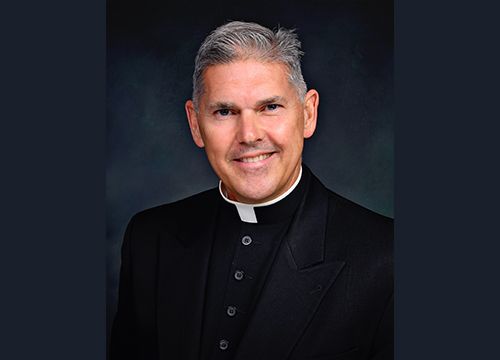Twenty-Sixth Sunday in Ordinary Time – Year B Nm 11:25-29; Ps 19:8, 10, 12-13, 14; Jas 5:1-6; Mk 9:38-43, 47-48
Sometimes we fear the wrong things. When we are kids, we may have feared getting caught in a lie rather than fear that we might lose our parents’ trust or hurt our relationship with them by telling the lie.
The first might lead to a punishment; the second can lead to years of regret. The second is worthy of fear.
In the Gospel, Jesus tells John not to fear someone who is performing a mighty deed in Jesus’ name even if that someone is not a disciple.
The modern equivalent would be to be jealous because a neighboring Protestant church is having a great deal of success in attracting souls for Christ or for that same Protestant church to be jealous of the wonderful things that are happening at a local Catholic parish. This is the wrong thing to fear.
Jesus turns to what we should fear — being cast into Gehenna to find ourselves eternally separated from God in hell. Yet even here, we can be tempted to be afraid of the wrong thing.
Our movies and TV programs are filled with the demonic. That fascination sometimes opens doors in our souls that should have remained shut.
Ask any of the priests in the diocese and they will tell you that they have gotten telephone calls or requests from Catholics and non-Catholics to perform exorcisms at people’s houses or over family members.
Although formal exorcisms are limited to specific priests in very specific situations, most priests are more than willing to bless the homes of those who make these requests and pray for their loved ones.
But I often tell these people, “Don’t be afraid.” Jesus is more powerful than any demon. Even the name of Jesus is more powerful than any demon. Fear just gives the evil one an entry point.
Yet Jesus does tell us to be afraid of one thing. Be afraid of what separates us from God. In the version of the Act of Contrition that most of you have prayed, we say, “O my God, I am heartily sorry for having offended you, and I detest all my sins because of your just punishments and the loss of heaven and the pains of hell.”
The pains of hell are something of which to be afraid, but a healthier fear is expressed in the next line of the Act of Contrition: “But most of all because they offend you, my God, who are all good and deserving of all my love.”
Most people who are not afraid of hell have that lack of fear because they don’t really grasp that their actions have any real consequences. They don’t fear hell because they are not in love with the living God. God has a universal salvific will, but he will not save us against our will.
Because they are not in love with the living God, the only God in their minds is an imaginary God of their own making. And they could never imagine that God might look at us and say to us, “Not my will, but yours be done.”
Although it is good to have this kind of fear, it is not enough. We won’t be saved simply because we fear the pains of hell or even the separation from God’s love.
We are saved only when, with the help of his grace, self-centered fear is actively conquered by self-transcending love.
Msgr. Timothy Keeney is pastor of Incarnation, Charlottesville.

